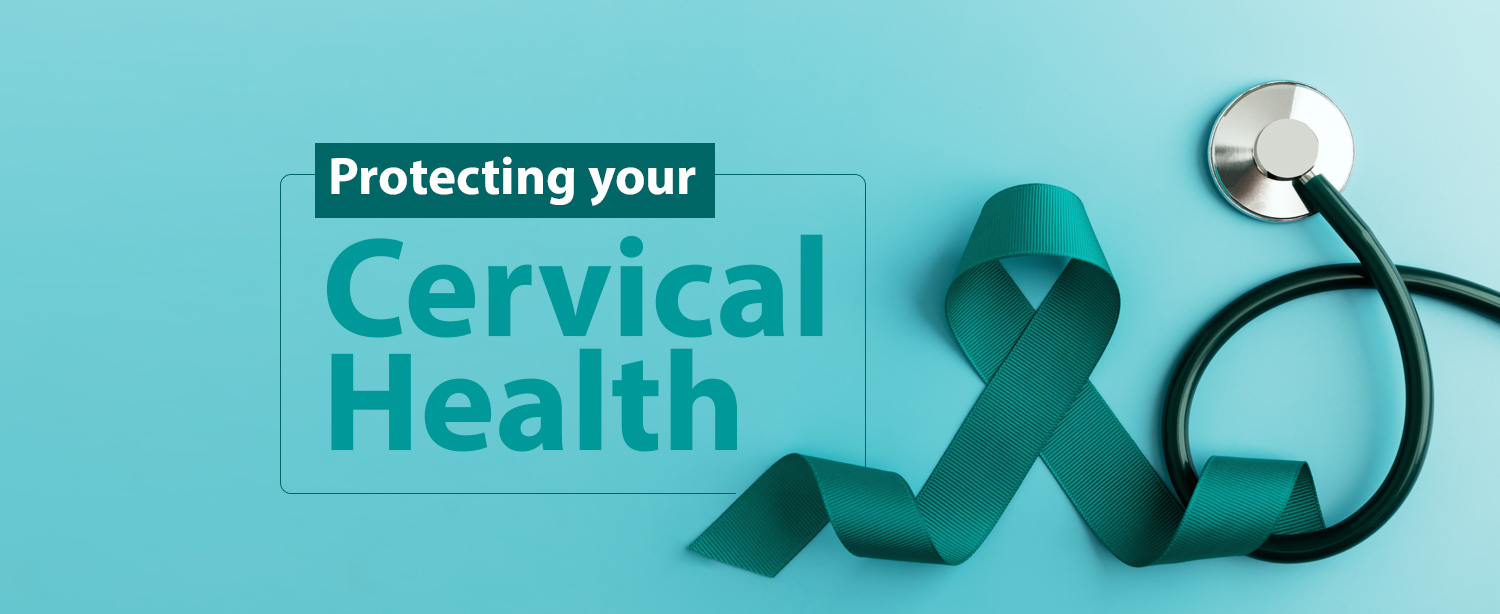Cervical health is a vital aspect of women’s overall well-being, and staying informed about common cervical diseases, their preventive measures, and treatment options is crucial for maintaining a healthy and fulfilling life. Cervical cancer is a silent threat that affects women around the world, claiming lives and causing significant morbidity. It is the most common cancer seen in Indian women, accounting for 10% of all cancer cases. However, with proper awareness and preventive measures, we can empower women to take charge of their health and reduce the incidence of this preventable disease.
Common Disorders that affect your cervix
Some of the most common conditions that affect women’s cervical health include:
- Cervical cancer
Cervical cancer is the growth of abnormal and malignant cells that starts in the cervix. - Human Papillomavirus (HPV)
HPV is a prevalent sexually transmitted infection that can lead to cervical cancer. Regular screenings, such as Pap smears and HPV tests, are essential for early detection and intervention. - Cervical Dysplasia
This condition involves abnormal changes in cervical cells and is often linked to HPV infection. Regular screenings can help identify and address dysplasia before it progresses to cervical cancer. - Cervicitis
Cervicitis is an inflammation of the cervix, often caused by infections. Safe sex practices and maintaining good hygiene can help prevent this condition.
Understanding Cervical Cancer:
The primary cause of cervical cancer stems from the persistent infection of high-risk strains of the human papillomavirus (HPV). This virus is commonly transmitted through sexual contact and can lead to changes in the cervix that may eventually progress to cancer. It’s crucial to recognize the risk factors, including early sexual activity, multiple sexual partners, and a weakened immune system, as these can increase the likelihood of HPV infection.
Preventive Measures and Healthy Living Tips:
Please find below the preventive measures against cervical cancer:
- Vaccination against HPV
The HPV vaccine is a powerful preventive measure that guards against the most common HPV strains associated with cervical cancer. The vaccine is most effective when administered before sexual activity begins, making it essential for young individuals, both males and females, to receive the vaccine. - Regular Screenings
Regular pap smear tests can detect abnormal changes in the cervix early on, allowing for timely intervention and treatment. Encouraging women to undergo regular screenings, especially those aged 21 to 65, is vital in the fight against cervical cancer. - Safe Sexual Practices
Practicing safe sex by using condoms and limiting the number of sexual partners can significantly reduce the risk of HPV and other sexually transmitted infections. - Maintaining Good Hygiene
Proper hygiene, including regular bathing and the use of gentle, unscented soaps, helps prevent infections that can contribute to cervicitis and other cervical health issues. - Healthy Lifestyle Choices
Adopting a healthy lifestyle contributes to overall well-being, including cervical health. A balanced diet, regular exercise, and avoiding tobacco can bolster the immune system and reduce the risk of cervical diseases.
Cervical Cancer Treatment at Kokilaben Dhirubhai Ambani Hospital
The key to overcoming cervical cancer lies in early detection and timely treatment, significantly enhancing the prospects of survival. The Centre for Cancer at Kokilaben Dhirubhai Ambani Hospital, Mumbai has experienced and compassionate oncologists and onco-surgeons who specialize in the comprehensive diagnosis and treatment of cervical cancer. Our commitment to providing the best possible care is reflected in our utilization of state-of-the-art technology across the spectrum of cervical cancer care. From preventive measures and screening to early detection, our integrated approach incorporates advanced imaging techniques, including Mumbai’s first Digital PET – CT scan. Recognizing the multifaceted nature of cervical cancer treatment, our team offers a seamless continuum of care under one roof. Our patients benefit from a holistic approach encompassing surgery, radiation therapy, and chemotherapy. If you or someone you know is in need of cervical cancer care, please reach out to our team. Please find below the website details: https://www.kokilabenhospital.com/departments/centresofexcellence/centrefor_cancer/gynecologicaloncology.html


